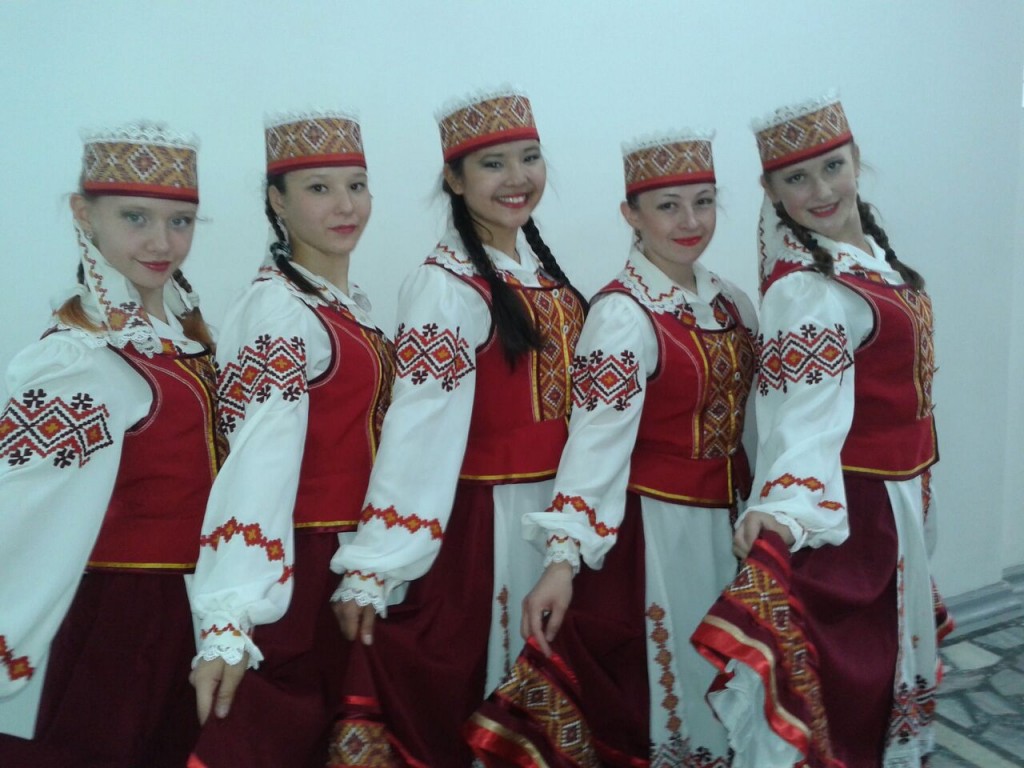ASTANA – Kazakhstan is home to more than 130 ethnic groups. Millions perished in the vicious repression led by then-Soviet strongman Joseph Stalin in the 1930s that continued until the 1950s; however, Belarusians suffered a different fate even earlier.
 “The first Belarusians in the territory of Kazakhstan were sighted in the mid-nineteenth century,” said Alexandra Romanova, chairwoman of the Belarus Public Association. “They were exiled Belarusians from the 1863-64 coup d’état in Belorussia that was unsuccessful. Later, during [Pyotr] Stolypin’s reforms some Belarusians were also sent to Kazakhstan.”
“The first Belarusians in the territory of Kazakhstan were sighted in the mid-nineteenth century,” said Alexandra Romanova, chairwoman of the Belarus Public Association. “They were exiled Belarusians from the 1863-64 coup d’état in Belorussia that was unsuccessful. Later, during [Pyotr] Stolypin’s reforms some Belarusians were also sent to Kazakhstan.”
Stolypin, Russian Prime Minister and Minister of Internal Affairs from 1906 to 1911, was mostly remembered for his efforts to counter revolutionary groups and implement agrarian reforms.
“But the majority of us came here during the years of the Virgin Lands campaign in 1954-65,” Romanova explained. “As for myself and my family, I was repressed, because my father was exiled for anti-Soviet propaganda. There are still photographs of my family at the ALZHIR museum.”
ALZHIR, an acronym in Russian for “Akmola Camp for Wives of Traitors of the Motherland,” is a former labour camp 35 kilometres from Astana. It is the most notorious in GULAG Archipelago, made globally famous by Alexander Solzhenitsyn, which was reserved for the spouses of those considered enemies of the people.
“I remember in the 1930s our parents would get all Belarusians in Kazakhstan together, socialise and spend the evening together and I thought to myself, ‘why can’t we do the same these days?’ And in 2001 we organised our own dancing classes, we established our community and are now a part of the Assembly of the People of Kazakhstan. I was awarded with a Labour Valour medal by President Nursultan Nazarbayev. We participate in all venues hosted by the assembly. We not only focus on learning and preserving our own language, but also are actively learning Kazakh, as there are free courses offered at the Akimat. At the upcoming concert our Belarusian singer will sing in Kazakh. She is fluent in Kazakh, but will perform in a Belarusian national costume. We also have our young vocal band Alessya. I try to focus on the younger generation, because it is important they know our past and cultural heritage.”
“[In Kazakhstan] we are given opportunities. We can open Sunday schools if we like and language schools and we are given the opportunity to speak our own language. We also can pay visits to other communities; for instance, recently we had a holiday within the Jewish community. They invited us and we went. The Turkish community also had a similar festival, so we also organised an event [called] Bulbachka where we demonstrated Belarusian cuisine and culture. Guests didn’t want to leave at the end of the event. We invited all the chairmen of different ethnic groups under the Assembly, so guests were from different cultures. It was really, really interesting. We need to host another such festival soon.”
With numerous connections in her historical homeland and no political repressions since the collapse of the USSR, Romanova prefers to live in Kazakhstan and has her own solid reasons.
“My father was repressed in the 1930s and we didn’t have the right to keep in touch with our relatives back in Belarus. When my father was 80, in his sleep at times he would scream out, ‘it was not my fault that we got deported, father, it was not my fault.’ His words watered our eyes. My parents were sent out from Belarus in cattle cars and in trains, but when I was taken by our Akim to Belarus to celebrate Minsk Day and when we were greeted there with flowers and all formalities my soul shattered – my parents were exiled from here and I am met with honours and a red carpet and flowers. This is one of the reasons [I never thought] about moving back to Belarus and also because it is [unwise] to try and plant one tree twice.”
According to statistics and population records, the Belarusian population in Kazakhstan is steadily reducing. Today, there are about 67,000 left in the country, with heavily-populated areas in the Kostanai, Akmola, Karaganda and North Kazakhstan regions, while in 2009 the population was 88,000 and in 2005 totaled some 94,000. According to community member Halil Maslov, who wrote a thesis paper on Belarusians in Kazakhstan in 2009, such migrating tendencies mostly among the younger generation is explained by the proximity of Belarus to Europe. The younger generation is relocating to Belarus to be able to move closer to Europe in the future and some Belarusians move from Kazakhstan to Russia.
